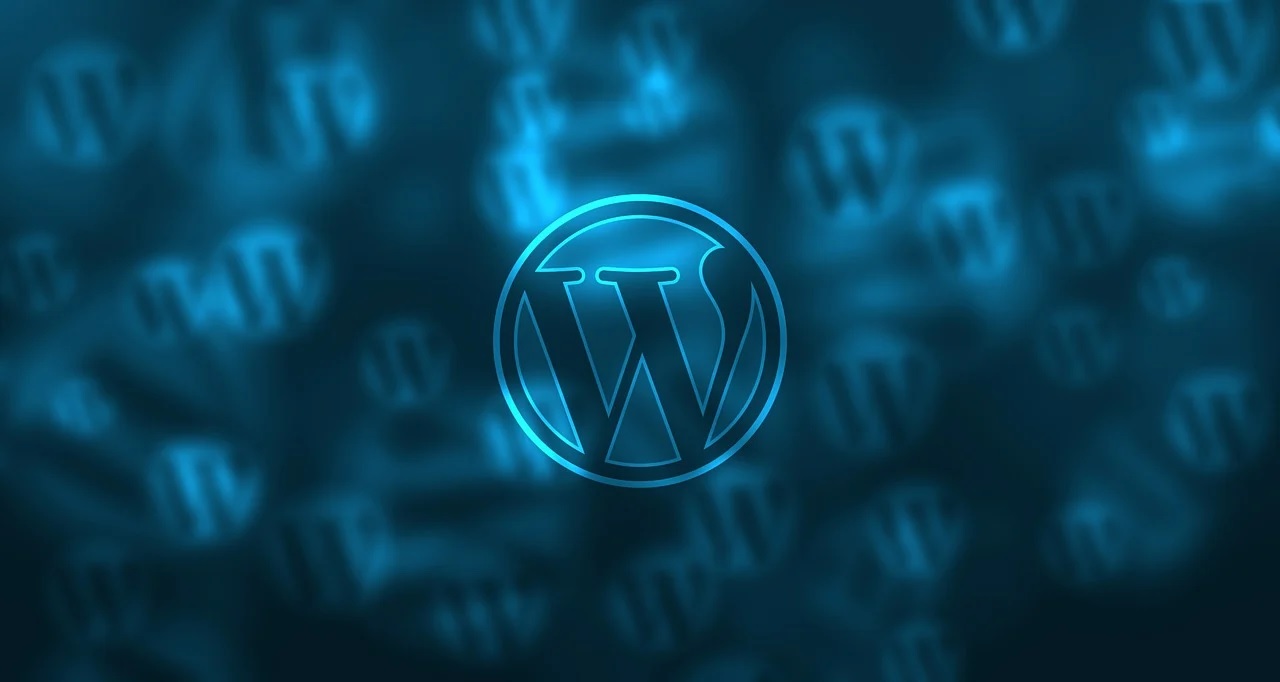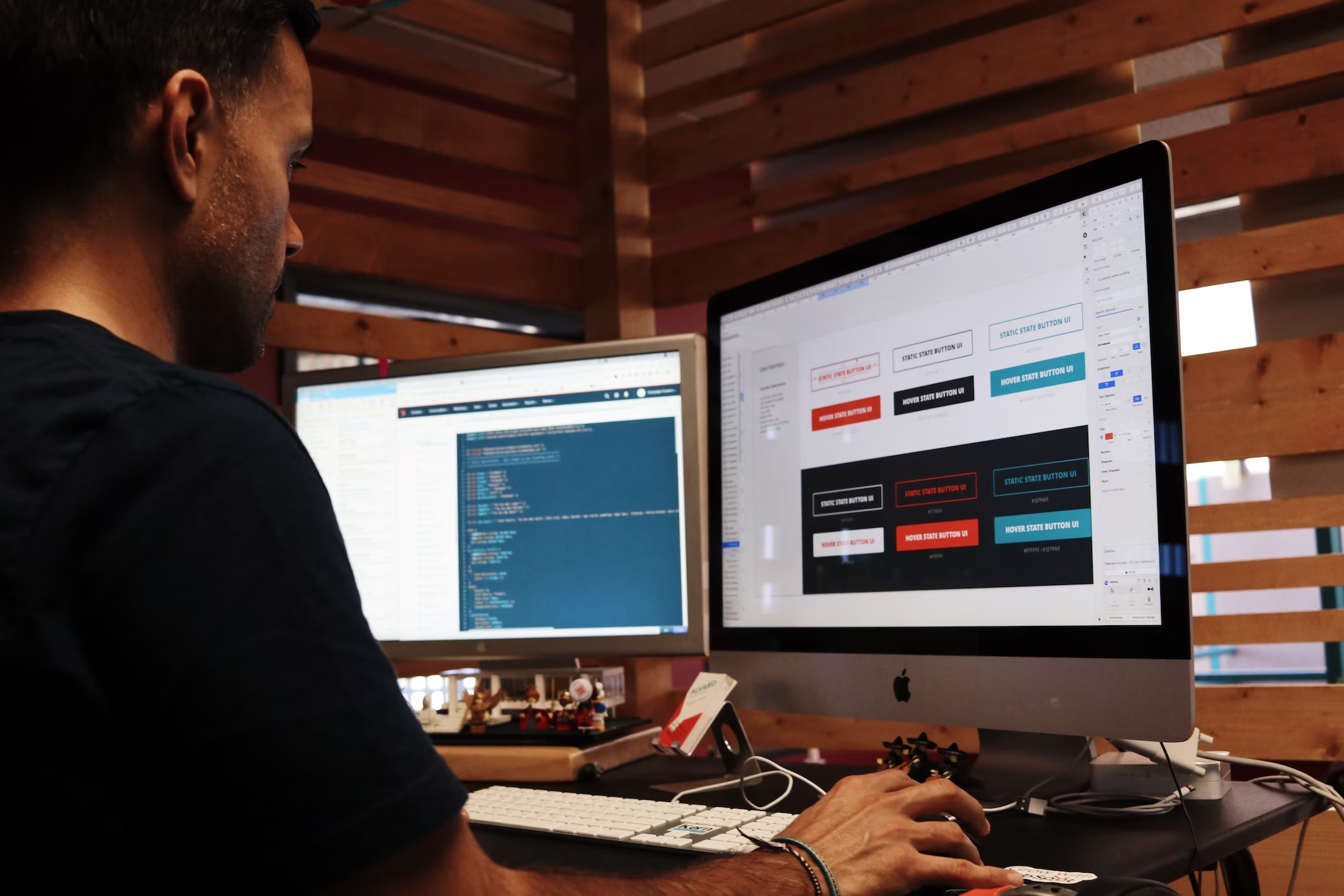
In today’s digital landscape, having a strong online presence is crucial for any business. However, when creating a website, you have a choice: custom website design vs template.
This decision sets the foundation for your online identity, and each option has its advantages and trade-offs. Moreover, web design can boost your SEO – so it’s not a choice to make lightly. Understanding these differences will help you make an informed choice that aligns with your business goals and resources.
So, let’s explore the issue so you can confidently embark on your online journey.
A Note on WordPress Website Health and Customization Options
Before we begin, this subject warrants an introductory note.
WordPress, the biggest CMS platform in the world today, plays a pivotal role in website development. Its user-friendly interface and extensive plugin library make it a go-to choice for many. However, the two options interact with it in different ways.
Frankly, when it comes to customization, the approach differs between custom designs and templates. With custom designs, the sky’s the limit. Every aspect can be tailored to match your brand’s unique identity. That includes layout, functionalities, and special features that align perfectly with your business goals. On the other hand, templates offer a more streamlined approach. While they provide a range of pre-designed options, the scope for extensive customization is more limited.
Finally, regardless of your chosen approach, WordPress website health and security should always be prioritized. WP Full Care notes that poor maintenance impacts website performance, and security breaches can have catastrophic consequences. So, you should ensure your approach involves regular updates, robust security measures, and timely backups. That safeguards your online presence and ensures seamless performance and user experience.

Custom Website Design vs Template: Pros and Cons
With introductions in order, let’s delve into the subject at hand.
Custom Web Design
Custom web design is a design approach where every element of your website is created from scratch to fit your brand perfectly. Unlike pre-made templates, which might not capture your unique essence, custom design ensures a tailored solution.
This tailored approach results in a website that looks great and functions seamlessly, providing a strong foundation for your online presence.
Pros of Custom Web Design
With this in mind, custom web design does come with notable benefits:
- Tailored to specific business needs: Custom web design is like a made-to-measure suit, perfectly fitting your business. It’s crafted to meet your unique requirements, ensuring every element aligns with your brand’s goals.
- High flexibility and scalability: With custom design, your website can grow and adapt as your business evolves. It’s like having a versatile tool to follow web design trends and adjust to meet new challenges and opportunities.
- Potential for advanced features and functionalities: Custom web design allows you to integrate specialized features and functionalities that may not be readily available in templates. That means you can implement cutting-edge solutions that cater to your specific industry or audience.
In a nutshell, custom web design empowers businesses with a tailored, adaptable, and advanced online presence, offering a strong foundation for success in the digital realm.
Cons of Custom Web Design
However, there would be no debate unless both also had some drawbacks. In this case, consider the following:
- Higher initial cost and time investment: Custom web design can require a larger upfront investment than templates. That is because it involves a more extensive design and development process tailored specifically to your business.
- Longer development time compared to templates: Building a custom website takes more time as it involves creating everything from scratch. That can result in a longer waiting period before your website is ready to launch.
In brief, custom web design can be more costly and time-consuming. Therefore, it may not deter larger businesses that seek tailor-made solutions, but it does bear noting.

Web Templates
Web templates, in contrast, come with pre-designed layouts and structures, making it easier to create a website without starting from scratch. These templates often include placeholders for images and text, allowing you to easily replace them with your content. This way, you can achieve a professional-looking website without extensive design skills.
Web templates come in various styles and themes, catering to different industries and preferences. They offer a convenient option for businesses or individuals looking for a quicker and more budget-friendly way to establish their online presence.
Pros of Web Templates
With the above in mind, you can likely guess which pros of templates drive the custom website design vs template debate. To summarize them:
- Faster development time and lower initial cost: Web templates offer a speedy route to getting your website up and running. Additionally, they’re generally more budget-friendly than custom designs, making them a cost-effective option for many.
- Variety of options available: There’s a wide array of web templates out there, especially WordPress templates, covering diverse styles and purposes. Whether in the fashion industry or running a tech blog, you can find a template that suits your needs.
- Suitable for smaller businesses or personal projects: Web templates are particularly well-suited for smaller businesses or personal ventures. They provide an accessible and affordable way to establish an online presence without the need for extensive resources or technical expertise. That makes them a practical choice for those with limited budgets or those looking for a quick solution.
In a nutshell, web templates offer a quick and affordable solution without quality compromises. They’re thus a common safe choice for those with more restrained budgets, less web design experience, or less time.
Cons of Web Templates
That said, templates also come with drawbacks of their own. Namely:
- Limited customization options: While web templates offer convenience, they also have constraints. Customization is often limited to changing text, images, and basic layout elements.
- May require additional plugins for advanced features: If you’re looking for specialized features beyond what the template offers, you may need to rely on plugins. While these can extend functionality, they can also introduce complexities and potential compatibility issues.
In brief, templates may prove inflexible and not meet evolving business needs. That may not present a deal-breaker for smaller or starting businesses, but it too bears noting.

Making the Decision
So, to summarize, when choosing between custom website design and templates, it’s essential to weigh the options carefully. Custom design offers a tailored approach, ensuring every element aligns perfectly with your brand. On the other hand, templates provide a quicker and more budget-friendly solution, albeit with some limitations in customization.
The key is to align your choice with your business goals and budget. Consider the specific needs of your brand and how each option supports them. Additionally, think about the long-term vision for your website. Custom designs often offer greater flexibility for growth and adaptation as your business evolves. Finally, scalability is crucial. A template may meet your current needs, but you may find it limiting as your business expands. On the other hand, custom designs can be crafted to accommodate future developments.
Ultimately, the decision boils down to finding the best fit for your unique business. Considering your goals, budget, and long-term vision will guide you toward the choice that sets your business up for success in the digital landscape.
Conclusion
In the dynamic world of online presence, the choice between custom website design vs template is pivotal. It’s akin to selecting the perfect canvas for your business’s digital portrait. Custom design offers a tailored, one-of-a-kind solution, while templates provide a convenient starting point. Both have merits, and the right choice hinges on your business’s unique needs, budget, and long-term vision.
So, whether you opt for a custom masterpiece or a template-based foundation, remember that the key lies in aligning your choice with what sets your business apart. It’s about finding the ideal medium to paint your brand’s story on the digital canvas of the internet.